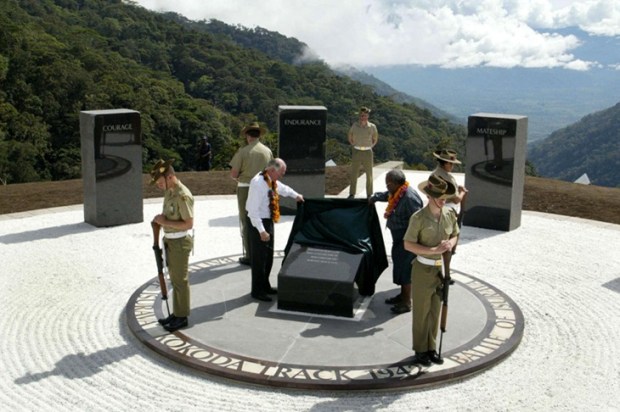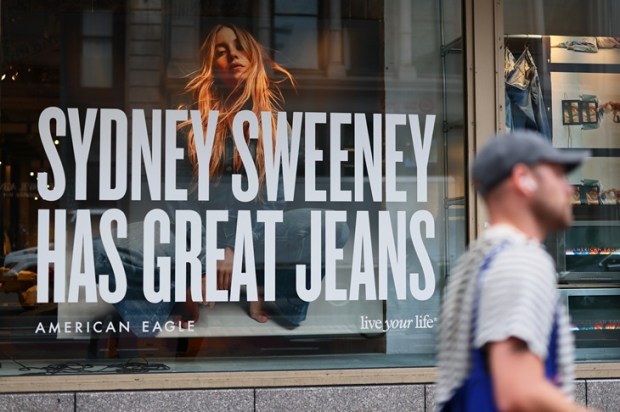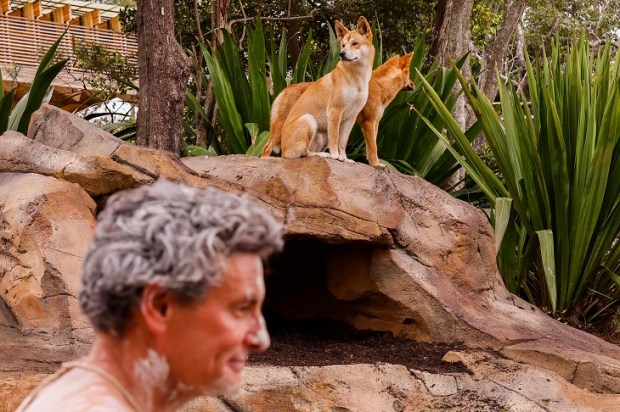It was an odd choice of venue, but I accepted it, perhaps the invitation was meant ironically, a joke, something to spice up an evening, although she would have had no idea about my politics at that point.
I’ve been single now for quite a while and women are so bold and empowered these days, sometimes I get asked out on dates. Women now seem far less shy than I am; this invitation came while standing in a coffee queue.
I was invited to an event at the Sydney Writer’s Festival. I’ve never attended any of these festivals before, as Gerard Henderson’s columns have over the years convinced me that they are get togethers of the self-declared morally pure, left-wing, homogenous, and conservative free zones.
Yet, here it was, an email ticket to attend a discussion of her new book, I Don’t by author Clementine Ford – her case against marriage. The talk was held at a place called the Carriageworks in Eveleigh, the closest rail station is Redfern.
Throughout Ford’s presentation, which was in the form of responses to a moderator’s questions, I took notes on my phone. I didn’t know if I could get a transcript afterwards and suspected her comments would be good material for a Flat White article at some point.
The following night at the same venue, ABC political correspondent Laura Tingle called Australians ‘racist’ which became a bit of an issue for the board of the taxpayer-funded ABC.
It turned out my inclination was good, Ford’s comments were memorable.
To my recollection, she seemed to be arguing this interesting idea that a society’s children should be reared in all-female communities, where the women would support each other and dispense with men. I don’t recall her explaining the mechanics of how it was the women got pregnant; I guess she envisions an industrial scale sperm harvesting and IVF infrastructure. At least that was my interpretation of her talk, but I’ve not read her book where it is probably set out in detail.
To give you some sense of the audience’s, the main crowd excitement arose whenever Ford’s disparagement of men broke from vague civility into straight out profanity.
After the talk finished, a coterie of women rushed and surrounded Ford near the stage; they were like members of the Collingwood women’s AFL team, huddled and scrapping after the centre bounce, all kitted out in black and white, except the pattern wasn’t vertical stripes, rather, the jersey pattern was that of radical chic Palestinian keffiyeh.
My date and I then got pizza nearby; the restaurant didn’t have any standard beers like Peroni or VB, and I was forced to drink a bottle that had a picture of Bob Hawke’s head on the label. When I went to pay the bill, the waitress seemed baffled and uncertain on how to accept my offer of a tip. She called over the chef to work out how a 15 per cent tip could be configured on the EFTPOS terminal.
Then I remembered I was in Surry Hills, where the profound sensitivity to injustice and the sheer goodness of its locals doesn’t it seem extend to something as crass as giving a waitress a tip.
It was during the pizza meal that red flags started going up. There was an Aboriginal dot painting on the back wall, and my date commented on how stunning it was.
I told her that canvas dot paintings emerged in the 1970s in an art class held by a whitefella, well after Captain Cook had arrived. And that the original and authentic Aboriginal drawings were mostly done in sand and dirt, so they’ve not survived rain and wind.
Some, thankfully, were etched into rock, such as that which can be seen at Berry Island Reserve near Wollstonecraft.
She took up my reference to Captain Cook and launched into him. She described him as a ‘horrible’ man and that all Australian land was First Nation’s land. She’d voted ‘No’ in the referendum, because Albo’s proposal hadn’t gone far enough.
She had crossed a line with me, yet that old male weakness kicked in. I told myself that opposites attract, and that girlfriends in full agreement on everything are boring.
There was also this country song I remembered, written by singer Sunny Sweeny, about two politically opposite neighbours who befriended through a love of country music. This is one of the verses, usually sung in duet:
“I’ll ignore all your hippie bumper stickers
And that Ronald Reagan poster on your wall
It’s true that we’ve got nothing in common
But a love of country music conquers all.”
Of course, these rationalisations were not the workings of a truth-seeking clinical mind, but something a lot baser.
She was at least a decade younger than me and at least two rungs higher on the physical appeal ladder. I overlooked her Captain Cook comment for the same reason men for centuries have defied their better judgement and destroyed their lives.
Even so, the evening was increasing strained. Her parents had migrated to Australia from Chile and she and her parents hated Margaret Thatcher for keeping ‘evil’ Pinochet in power who, she said, had Chilean communists thrown into the ocean out of military helicopters. She said Western governments had a lot to answer for, although I noted she stopped short of invoking intergenerational trauma.
Rather nastily, I asked her why her family moved to a Western country if its values were so appalling and had they ever considered moving back to Chile. Her response was infantile, she said she wanted to destroy the West from the inside.
At that, I asked her to stop the car, and got out. It is of course embarrassing for me to admit I had something of a teenage hissy fit. But there you have it.
When we spoke some days later, she conceded being ‘shitty’ and apologised for deliberately baiting me.
Incredibly she even attributed it to ‘that time of the month’. She then asked me to apologise for storming out of the car which I refused to do; obstinance is a cherished right of my white male privilege.
I should have taken Henderson’s perennial advice, and just not gone to the Sydney Writer’s Festival. And, by the way, that’s also the end of Woke women for me. The results are in.
Nick Hossack is a public policy consultant. He is former policy director at the Australian Bankers’ Association and former adviser to Prime Minister John Howard.

























